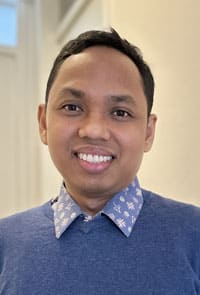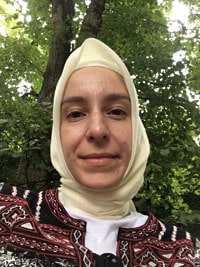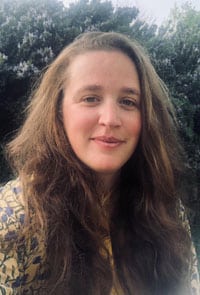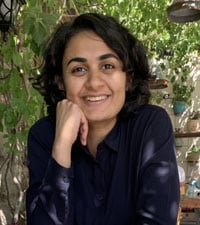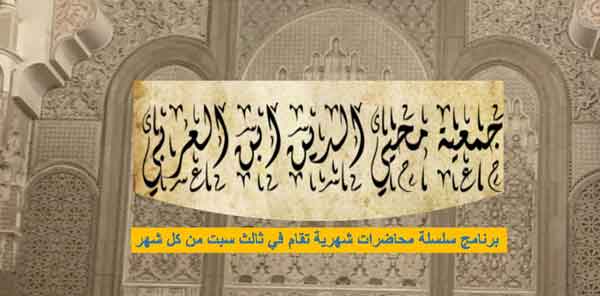Upcoming Worldwide Events and Symposiums
Lower down this page
The judges have announced the results of the competion.
About the young writers
• MIAS-Latina
Online talks in Spanish, Portuguese and Italian
17 January 2026 | Online event
Dr Hamadi Anouar
Status of Reason in the Mystical Experience
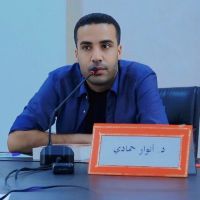
Hamadi Anouar is a Professor of Philosophy at Mohammed V University, at the Higher Teachers College in Rabat. Dr. Anouar has participated in numerous national and international conferences and symposia, and has published a wide range of articles, studies, and translations in specialized, peer-reviewed national and international journals. He has also contributed to several edited volumes.
Selected publications:
- Anouar, Hamadi, Religion between Reason and Unreason in Bergson’s Philosophy, Mominoun Without Borders Publications, Beirut (2025).
- Mizrahi, Robert, Happiness: An Inquiry into Joy, translated and introduced by Hamadi Anouar, Safhat Sabaʿa Publications, Kingdom of Saudi Arabia (2025).
- Anouar, Hamadi, Being and Meaning: The Meaning of Being and the Being of Meaning in the Experience of the Human Condition, Mominoun Without Borders Publications, Beirut (2026).
- Translation of The Ethics of Desire and Happiness in Spinoza’s Philosophy, by a group of authors, Al-Mutawassit Publications, Italy (2026).
Dr. Anouar lecture seeks to highlight the status of reason in the mystical experience. The expression “mystical experience” is deliberately used rather than “Sufism” so as not to limit the discussion to the concept of reason within the Sufi tradition alone, and to emphasize that the lecture offers a philosophical reflection on lived experience, shaped by a constellation of states and spiritual stations, along with the emotions, feelings, and sensations that the mystic undergoes and lives as an inner, subjective experience.
Moreover, the formulation of the title avoids reducing mysticism to a specific religious or cultural context (Jewish, Islamic, Christian, Buddhist, etc.), allowing it instead to approach the mystical experience as a universal human experience, which may be religious or non-religious. Even in its religious dimension, the focus is placed more on spiritual depth than on doctrinal aspects.
The mystic does not merely live the experience; rather, they reflect upon what they live, become conscious of what they are experiencing or what they have experienced and later recalled. They also attempt to think about their states, contemplate their spiritual stations, and express them through speech and language. At this point, however, the experience often descends into the depths of ambiguity and resistance: reason fails to grasp it, language falters in expressing it, and silence comes to dominate the experiencer. The result is a failure to “conceptually comprehend” this lived reality, leading to confusion on the part of the mystic and perplexity for those to whom the experience is conveyed.
Accordingly, the lecture raises a number of critical questions: if mysticism is described as an “irrational experience,” as is commonly agreed upon across mystical traditions worldwide, what does this irrationality mean? Is it truly a supra-rational stage, or a regression to a level below reason? And in light of this irrationality, how can we account for the existence of a written mystical tradition expressed through language? Does not the irrational nature of mystical experience require it to remain hidden, concealed, and resistant to expression? Finally, if the mystical experience is subjective and lived, how can it be thought about, understood, and written about by someone who has not personally experienced it?
People who would like to attend the lecture can use this link: https://us06web.zoom.us/j/83484657052?pwd=M3NSTFhINVl2c1k2ME1JVzRnd092QT09 [/]
Meeting ID: 834 8465 7052 | Passcode: 000000 | Find your local number: https://us06web.zoom.us/u/kb23I9qIRQ [/]
For more details of the series of lectures, please see the Facebook group: https://www.facebook.com/groups/arabicibnarabi
- For further information please e-mail mias-as@nokshee.com.
Saturday, 8 Nov 2025
The Degrees of Human Reality According to Ibn al-‘Arabi
Sophie writes: In chapter 351 of The Meccan Openings (al-Futuḥat al-Makkiyya), Ibn al-‘Arabi refers to what he terms “the science of the quantity (of categories) of human beings in existence” (‘ilm kam insan fī al-wujud):
“When you know that there are only three (categories of) human beings in existence — the primordial, universal, most ancient man (al-insan al-awwal al-kull al-aqdam), the world-man (insan al-‘alam), and the Adamic man (al-insan al-adami) — then observe which of these three categories of human beings is the most complete (al-atamm).”
This elliptical passage outlines a tripartite typology of human existence that underpins the Shaykh al-Akbar’s anthropological vision. It invites closer examination of how he conceptualises the ontological gradations among these three categories of human beings, an inquiry that this presentation pursues by shedding light on how he delineates, in his work, the boundaries that distinguish them.
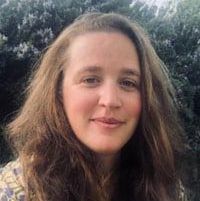
Tickets and discounted tickets
Members of the Society enjoy free admission but must register. The promo code will be sent to members via email. For non-members, there is a fee of £10.00 to access MIAS online events. If you are interested in joining the Society to receive benefits like the Society’s Journal, newsletters, and free admission to online events, please visit: https://ibnarabisociety.org/s-membership-uk/
We offer a limited number of tickets at a subsidised rate of £5.00 for attendees with low incomes. Additionally, a select amount of complimentary tickets may be available upon request. To apply or inquire further, please email us at: events.uk@ibnarabisociety.org
Register here: https://www.eventbrite.co.uk/e/the-degrees-of-human-reality-according-to-ibn-al-arabi-registration-1770778499159
Registration closes 24 hours prior to the event.
Zoom links are emailed to registrants one day before the event.
Procedure
The seminar will run on the Zoom platform. It is best to download the Zoom software in advance. For instructions on how to join a Zoom meeting: https://support.zoom.us/hc/en-us/articles/201362193-Joining-a-meeting [/]
The presentation will be recorded by the facilitator. The Q & A will not be recorded, in order to protect attendees’ privacy, in line with UK data protection legislation. No other recording is permitted. A video of the presentation will be available subsequently on the Society’s YouTube channel.
September, 2025
The Mystical Words and Worlds of Ibn ‘Arabi: A Hermeneutic and Creative Approach
The Muhyiddin Ibn Arabi Society (MIAS) is delighted to announce that its Education Programme has received project funding from the Templeton Religion Trust (TRT), awarded via the ‘Program in the Study of Mysticism’ (PRISM) at Tampere University, Finland. PRISM aims to develop ways to move beyond reductionist readings of mysticism, which have tended to dominate much educational discourse, seeking to re-situate it within the study of religion.
The MIAS PRISM project is titled “The Mystical Words and Worlds of Ibn ‘Arabi: A Hermeneutic and Creative Approach”. The project will be funded for two years. Our research will focus on evidence-based studies of mysticism that prioritise open-minded empirical research, considering creative engagement with the texts of Ibn ‘Arabi, cultural embeddedness, multidisciplinarity, and historical awareness. In addition to research and reporting on education courses, outputs include two books, a pedagogical manual, a journal article, a symposium and a film. Led by Dr Yafiah Katherine Randall, MIAS has assembled an international, interdisciplinary research team who are looking forward to sharing their passion for Ibn ‘Arabi during this intense period of engagement with the TRT and Tampere University.
This project is made possible through the support of a grant from Templeton Religion Trust, awarded via the Program in the Study of Mysticism (PRISM) at Tampere University. The opinions expressed in all publications and other outputs of the research project are those of the author(s) and do not necessarily reflect the views of Templeton Religion Trust or Tampere University.

August, 2025
Official Launch of the Tokat Institute for Advanced Islamic Studies
We have received from members and friends of the Society news of the launch of the Tokat Institute for Advanced Islamic Studies — a non-partisan academic institution dedicated to the rigorous and expansive study of the Islamic intellectual tradition.
Guided by a team of internationally renowned scholars, the Institute embraces a holistic and integrative approach to Islamic studies, engaging deeply with philosophy, mysticism, rational theology, science, logic, art, and literature.
Among the Institute’s many exciting initiatives are its grants, dissertation awards, and academic prizes, as well as its live, synchronous courses taught by leading figures in the field, including Professors Seyyed Hossein Nasr, William Chittick, and Oludamini Ogunnaike.
The Institute will also inaugurate its Fall Online Lecture Series, featuring talks by prominent scholars such as Professors Asma Afsaruddin, Peter Adamson, and Carl Ernst.
The Institute has announced three major scholarly publishing projects:
• Islamic Intellectual Traditions, a Diamond Open Access journal published in partnership with Brill.
• Studies in Islamic Thought, a Diamond Open Access book series published in partnership with Brill.
• The Tokat Library of Islamic Classics, a translation series published in partnership with Fons Vitae.
For more information, visit http://tokatinstitute.org [/]
July 2025
MIAS Education Programme – forthcoming online events
A Spiritual Genius for Our Times: Ibn ‘Arabi in Context
With Yafiah Katherine Randall, Celia Salazar, and Wafa Al-Turk
Engage with Ibn ‘Arabi’s teachings through the cultural, religious, and philosophical milieu in which he lived, travelled, and wrote. Readings include his accounts of conversion, encounters with mystics and philosophers, and powerful visions, inviting reflection on how his insights speak to our lives today.
Date: 14 October – 18 November 2025
Time: Tuesdays, 5:30–7:00 pm (UK time) | 6 weeks
Register here: https://www.eventbrite.com.mx/e/1597836795869 [/]
The Divine Feminine and Sacred Eros: Feminism in the Teachings of Ibn al-‘Arabi
With Hany T. Ibrahim
Examines a long-overlooked dimension of Ibn ‘Arabi’s teachings that reshapes how we understand gender, beauty, and the architecture of divine manifestation. Grounded in the Fusus al-Hikam and related writings, with focus on the Fass on the Prophet Muhammad, it considers sacred eros as the generative tension through which Being unfolds into form. Figures such as Hawwa’, Asiya, Maryam, Khadija, and Fatima are engaged as archetypes of emergence, birthing, veiling, and sustaining — each a mirror of the Real in her own metaphysical register.
Date: 13 January – 10 February 2026
Time: Tuesdays, 5:30–7:00 pm (UK time) | 6 weeks
Halting Between Vision and Word: Readings in the Mawaqif of ‘Abd al-Jabbar al-Niffari
With Angela Jaffray
Traces the Mawaqif (Haltings) of the 10th-century mystic Muḥammad ‘Abd al-Jabbar al-Niffari, whose visionary writings — received directly from the Real — profoundly influenced the young Ibn ‘Arabi. Readings from the Mawaqif, alongside related texts by the Shaykh al-Akbar, invite reflection on the barzakhi nature of spiritual pause: a transitional moment of halting, stillness, and divine address. Sessions draw on a new English translation that restores the immediacy and severe simplicity of Niffari’s original speech.
Date: 7 April – 5 May 2026
Time: Tuesdays, 5:30–7:00 pm (UK time) | 6 weeks
March 2024
Young Writer Award 2023 – Prize winner
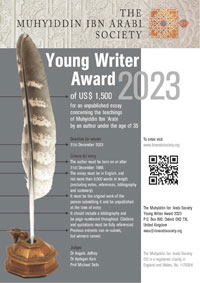
The award was judged by three prominent Ibn ‘Arabi scholars – Professor Michael Sells of the University of Chicago; Dr Aydogan Kars of Monash University, Australia; and Dr Angela Jaffray, who will be best-known to members of the Society for her translations of Ibn ‘Arabi’s works, The Universal Tree and the Four Birds (Anqa Publishing, 2007) and The Secrets of Voyaging (Anqa Publishing, 2015). Many thanks to them for the time and attention they devoted to task of choosing a winner out the eight excellent entries that we received.
The winning essay is entitled ‘Akbarian Hermeneutics in pre-Modern Javanese Literature’. As the title suggests, this is an exploration of Sufi Quranic exegesis in Javanese culture for which, as Ahmad explains, Ibn ‘Arabi’s ideas formed the predominant framework. The judges felt that this is a ground-breaking piece of work, exploring a previously little-known area of study and exhibiting excellent scholarship based on hitherto unstudied sources.
Other entries are also thought worthy of mention. ‘Highly Commended’ are Elif Emirahmetoglu for her essay: ‘The Human Self and Personhood in Akbarīan Sufism and Chinese Buddhism’, which again, breaks new ground in its detailed comparison between these two highly sophisticated traditions; and Sophie Tyser for her essay ‘The World, Man and Ritual Prayer according to Ibn al-ʿArabī’ for its thorough and comprehensive exposition on Ibn ‘Arabi’s understanding of prayer. ‘Commended’ is Farah Akhtar for ‘Cosmos as Revelation: Reason, Imagination, and the Foundations of Ibn ‘Arabī’s Scriptural Hermeneutics’. All four of these essays will be submitted to the Society journal for consideration for publication.
Many thanks to all those who sent in submissions to the award. The hard work and thought that went into all the essays is much appreciated, and it is great to know that there are such excellent young scholars working on Ibn ‘Arabi’s heritage. It bodes very well for the future of Akbarian studies.
Jane Clark
About the young writers
